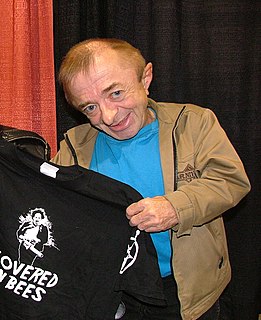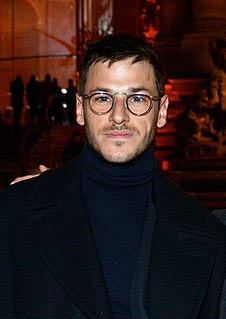A Quote by Jacques Rivette
And Twin Peaks, the Film is the craziest film in the history of cinema. I have no idea what happened, I have no idea what I saw, all I know is that I left the theater floating six feet above the ground.
Related Quotes
The business side of film has goofed up so many things, but even that's changing. It happened to the music industry and now it's happening to the film studios. It's crazy what's going on. But artists should have control of their work; especially if, as I always say, you never turn down a good idea and never take a bad idea.
I think film is a world of directors. Theater is a world of actors. Or, theater is for actors as cinema is for directors. I started in theater. Filming is as complete as directing film. In theater, you are there, you have a character, you have a play, you have a light, you have a set, you have an audience, and you're in control, and every night is different depending on you and the relationship with the other actors. It's as simple as that. So, you are given all the tools.
One night I had an idea while I was at the movies: to photograph the film itself. I tried to imagine photographing an entire feature film with my camera. I could already picture the projection screen making itself visible as a white rectangle. In my imagination, this would appear as a glowing, white rectangle; it would come forward from the projection surface and illuminate the entire theater. This idea struck me as being very interesting, mysterious, and even religious.


































